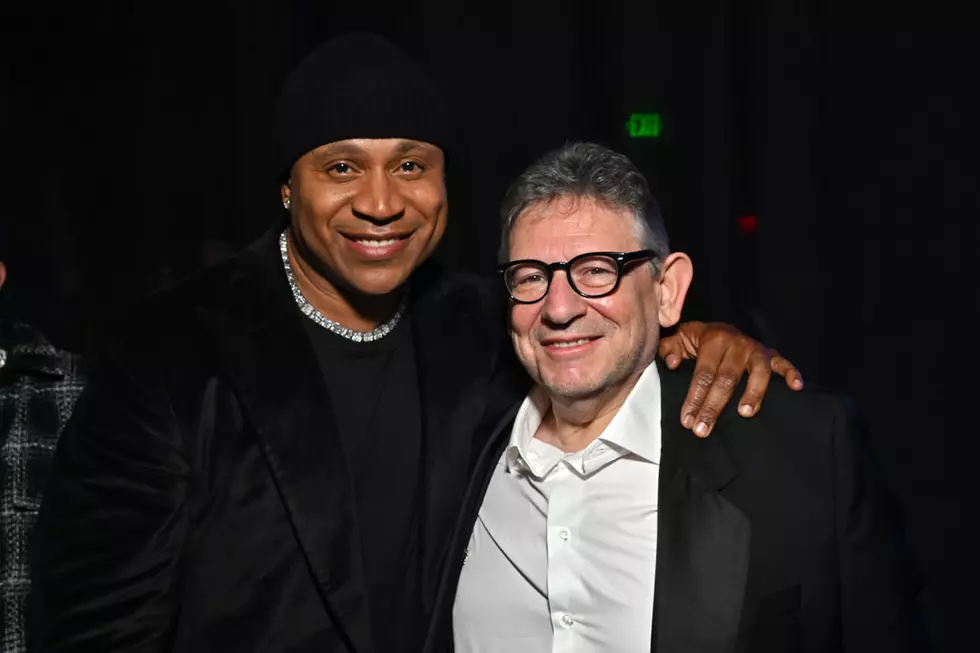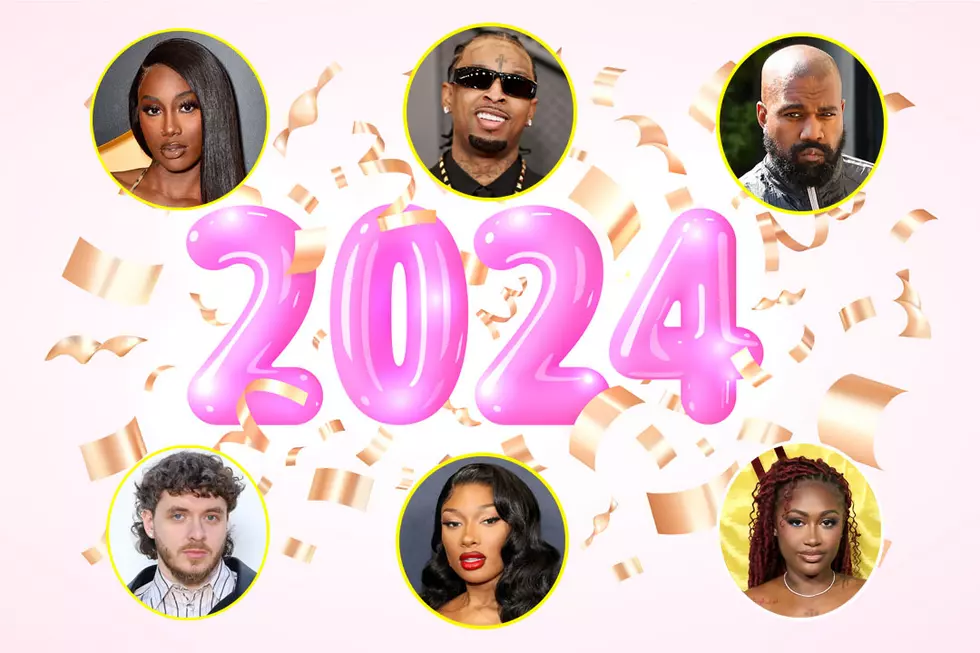
Ace Hood Has Found Maturity, Developed His Sound, And Is Rapping Better Than Ever
Ace Hood has been in the game for a while; at just twenty-five years old, he put out his fourth studio album, Trials and Tribulations, today (July 16) on Cash Money records. Some rappers are just like athletes in terms of career progression—it's usually their third or fourth year when they hit their prime, or when they peak musically. Trials and Tribulations is where we get to see an in-depth look into Ace's life and story so far. He can definitely make hit club songs—any argument against that was erased feverishly by the summer banger "Bugatti"—but what still seemed necessary was progression from his debut projects through the years. The road for Ace hasn’t been easy ever since he met DJ Khaled outside the offices of WEDR 99 Jamz, a South Florida radio station, in 2007, but after more than a half-decade in the game, he seems to be finally finding his feet and his place in the hip-hop community. Ace Hood hopped on the phone with XXL to talk about the significance of Trials and Tribulations, his definition of a true MC, and the differences between him as an artist now and in the past.—Emmanuel C.M. (@ECM_LP)
XXL: What is the message you want to portray with this album?
Ace Hood: I want my fans to understand the story more. The most important thing I think I’m focused on with creating this project is the connection. I just want more of a connection with my fans and for them to really understand more of what I represent and what I have to offer to the hip-hop community. And just for them to understand that I am a true MC, and truly great at what I do. This album is very inspirational. I’m hoping that it inspires and motivates whoever the listener may be. There’s just a lot of real, of course, substance on there and I’m just hoping to gain that connection, and I feel like I’ve been in this music industry for a while now and in a sense the connection is there, but I want it to come full circle when this Trials and Tribulations album drops. So that’s what I’m looking forward to.
When you say connection, do you mean artist-fan relationship? Or them getting to know your story?
Yeah, that too, all in one, all in one. Just to get to understand my story more and just for them to really understand what I have to offer and what I represent. My mind frame is just crazy. I just think once the fans actually really understand what I represent, man, this could be something so huge. It could transform [into] me being iconic in this music industry if it’s timeless music that I’m creating. This is not right now music. This is music that years from now, you’d be able to pop in and it’s still relevant to the things that we dealing with in our everyday lives, so that’s important to me.
What’s the definition of a true MC to you?
I think a true MC to me is one who is able to capture every element of music in a sense, every emotion. I think a true MC is capable of putting a body of work together. It’s not all about dropping singles, and doing that type of commercial thing, or commercial ability. It’s not about that. It’s all about what you can do to people, what type of impact your music can have. And I feel like that with Trials and Tribulations. That’s what it incorporates, a lot of – just great sounding music. These records, they are just different records. It’s not all about the radio singles and stuff like that, but it’s actually putting great records together and records that mean something, with true lyricism, bar for bar, and giving people substance, potency. I think that’s important and I think those are the traits that a good MC inherits.
What was the creative process like? What was your mindset?
I just wanted to speak on things that was relevant, things that actually mattered. It was important to me to actually make real records and not just focus on what’s hot or follow a trend or glorify jewelry and this that and the third. I didn’t want this album to feel like another trend or just something I’m just putting out. What I wanted people to actually get from my project is to be like, “Wow, he took his time with this.” And my whole creative process was just, stay true to what I believe in and never alter that, never—regardless of what goes on out here in the hip-hop community, just be comfortable with what I’m doing. And that’s what I'm doing.
Even the records—every record that I’ve created on this as far as picking titles and picking the features for this album as well, I was very tedious about the people that I wanted to work with and about the names of these records and my direction with them. I kinda blocked myself in a sense and kind of just, I read a lot, I listened to a lot of old school music. I was listening to a lot of Biggie and stuff like that. I was listening to a lot of 'Pac [while] creating this project, just a lot of the guys who inspired me growing up as a youth. So I took all that and I kinda just made it my own in a sense, and just really went into that thought process. [I] just picked everything that fueled me, from my daughter to the loss of my other daughter to me just losing my grandmother. All this has fueled this project; the doubt, me wanting more recognition, just everything, man, and the road blocks that I’ve been through, what it took for me to get here. I took all that energy and I incorporated it into this Trials and Tribulations project.
Was this recording process different from your other four previous albums?
Yeah as far as like, I recorded in different places. I got different energy in different places. I recorded some in New York, some in LA. As far as my other projects, I recorded in one place. So I was kind of based off, inspired by what was around me in that point in time. But yeah, I would say that was probably the most different part as far the recording process, I recorded different places, but it was really no difference from anything else. I just wanted to make sure that I gave the fans the right substance on this project.
You’ve been rapping since you were 17 years old. What’s the biggest difference from then to now?
I’m more of a man, [gained] more maturity. I think I found my sound. I know who I am. I know what I represent. And I know what I have to offer to this to this music industry, [which] I think is most important. Of course, I’m a father now. I got a daughter, two years old. So everything about me changed completely. I remained a student of the game for so long cause I was blessed to be around these huge superstars like a Wayne, like a Rick Ross, Khaled, Kanye's and Jay-Z's. I jumped in this industry real young—[I was] nineteen years old when I first jumped in. I just kind of sat back and soaked up a lot of energy, and even when I did have my down time in which I didn’t have any records and I went through the things that I went through, that truly was the turning point of my career—right before “Hustle Hard” dropped, when I had to get things in order. So it’s just made me more a man, more of a business man as well. And practice make perfect. It helped me understand that I need to perfect my craft and just stay working, man. I learned a lot as opposed to before; when I was in the studio every once in a while, I was just learning. I didn’t know how to go about things. But it’s totally different now as far as the way that I move and the way my mindset is and the maturity and just all the things like that, man, that comes along.
Do you ever listen to your old singles and be like, “Man I came a long way,” or “I sound really different now” ?
Of course, man. I was performing a record not too long ago off of my Gudda album, my first album, man I was just shocked on the growth. I was—every once in a while it’s good to go back and to look at some of your interviews so you could kind of appreciate the journey. That’s what’s the great thing. That’s why I’m happy about everything that’s going on, my steady process to rising to the top, because it just allowed me to appreciate the journey much more, as opposed to me jumping to the industry and me catapulting to the top. It allowed me to cherish the moments that I do have and worked that much harder and stuff. So every once in a while I like to go back and look at older interviews and be like, man, my hair was shorter, the whole look was different as opposed to now. But it’s all inspiring, very inspiring.
More From XXL









